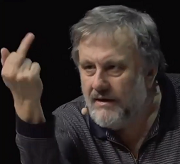|
It's not so much that the forums aren't a cult and more that we're just seeing similar behavior that curves similarly to the downwards spiral of narrativists undergoing a compaction cycle without going down the exact same path. Just behaviors that are similar but with different outcomes due to the different makeup and personalities of the people involved, along with different structures and definitions of standard and acceptable interactions. Edit: I just realized that tl;dr my post is just saying it's because the forums aren't a cult. Argas has issued a correction as of 07:11 on Nov 1, 2018 |
|
|
|

|
| # ? May 29, 2024 22:09 |
|
T-man posted:You're pretty consistently a massive idiot and a terrible mod. Piss off with this third rate political analysis, you sound like a 19 year old who just read the communist manifesto for the first time. Christ almighty Dioevich would you take your vendetta against me out of C-SPAM for fucks sake? You catch a little bit of blowback for being a dick and you double down and abuse your mod powers. Good loving job.
|
|
|
T-man posted:You're pretty consistently a massive idiot and a terrible mod. Piss off with this third rate political analysis, you sound like a 19 year old who just read the communist manifesto for the first time. 
|
|
|
|
|
R. Guyovich posted:no, i definitely think this theory is a dead end and moves people away from truly liberatory frames of thinking. but that has nothing to do with probations given for kale-style narcissism and we've discussed this ad nauseum over pms. You made your point and no one gives a poo poo. Holy poo poo people are being probated for calling you out on this? Wow. Unzip and Attack has issued a correction as of 15:04 on Nov 1, 2018 |
|
|
|
lashing out at extremely mild and accurate observation that this is an extraordinarily general and vague collection of ideas that could benefit from more reading and less writing, lashing out at helsing's suggestion you investigate what others have written about it, then working into a froth over a 24h lovetap for calling an admin a massive idiot and terrible mod for--again--being super microwave-mild is sure a series of events that happened before *checks watch* page 7. what, exactly, is everyone's perception of CSPAM other than a place fishmech cannot post? BrandorKP posted:The forums aren't a cult, so one would hope they'd recover in a way that cults don't manage to. step one of not being a cult: do not criticize the central charismatic receptacle of recieved KnowledgeOH GODDAMMIT, wait, no i got this...
|
|
|
|
Willie Tomg posted:step one of not being a cult: do not criticize the central charismatic receptacle of recieved KnowledgeOH GODDAMMIT, wait, no i got this... PJ does seem a bit sensitive to constructive criticism, but people are still offering it. Including a giant reading list of free material that anyone could download.
|
|
|
|
Aleph Null posted:PJ does seem a bit sensitive to constructive criticism, but people are still offering it. Including a giant reading list of free material that anyone could download. i think that was a fantastic collection and have said as much at the time and will say it again here, and making this thread a collective reading room would be a really really really cool place for this thread to go because as communists/socialists/pan-leftists/radicals/whatever getting together and bringing the university out of the university is 1000% our loving jam.
|
|
|
|
Willie Tomg posted:i think that was a fantastic collection and have said as much at the time and will say it again here, and making this thread a collective reading room would be a really really really cool place for this thread to go because as communists/socialists/pan-leftists/radicals/whatever getting together and bringing the university out of the university is 1000% our loving jam. I downloaded every one of those suggestions to my tablet.
|
|
|
|
though i understand why it is not, i wish the forum were just a teeeeeeensy bit more lenient toward the Five Finger Discount because savvy customers can snag a copy of Adorno's The Authoritarian Personality and the clinical and projective data in that book would be real drat relevant here IMO as a counterpoint to just-so proclamations about demography, though in lieu of that here is a pretty okay thesis paper digesting it and seating it among later works--like Altemeyer's--and goes a little way toward the supposed apolitical application of this strain of narcissistic ideology.
Willie Tomg has issued a correction as of 16:08 on Nov 1, 2018 |
|
|
|
At present I'm working on a very large update that is a deep dive into Integrators and Structuralists, and I was hoping to get the threads help on something. I need a useable term for "the smallest computational unit the brain uses to process information". The term I am using for this concept in my notes is a placeholder rooted too deeply in my internal language to be utilized in the article I am writing.
|
|
|
|
What do you mean?
|
|
|
|
an Attention Marble. boom rack 'em. serious answer: thoughts do not work in discrete units, though perhaps that's what you're struggling with? a term for a whim? a notion? an impression? an occurrence? "a quantum of thought" isn't really a thing, though that might be what you're fishing for?
|
|
|
|
yeah a quantum of something seems appropriate
|
|
|
|
Hmmm, I'm trying to think of a better way to explain. Imagine if the brain created our experience of reality by building elaborate Lego structures. (Just go with me here). Each Lego in this metaphor represents a set structural way of processing information and the way they are collectively assembled represents the process of "manufacturing thought". I need a word to describe the Legos from this metaphor.
|
|
|
|
Willie Tomg posted:an Attention Marble. boom rack 'em. I fully agree, thoughts do not work in discrete units. What I am trying to get at here would be more like individual (and interchangeable) mathematical equations used in code for writing a complex computer program. Imagine a huge database of these various equations which are frequently referenced and used. I am looking for a word to describe these equations. Edit: this would be occurring at a sub-awareness level. Not a thought or a notion or a whimsy- those are all much to large and occurring at the level of conscious awareness, More like if you were to take a flash image of a brain as it was thinking that allowed you to see the individual neural pathways that were lit up in that specific moment; and then labeling some of the various neural pathways according to the way they influenced the ultimate outcome of the thought that was experienced at the conscious level. Prester Jane has issued a correction as of 17:14 on Nov 1, 2018 |
|
|
|
Willie Tomg posted:though i understand why it is not, i wish the forum were just a teeeeeeensy bit more lenient toward the Five Finger Discount because savvy customers can snag a copy of Adorno's The Authoritarian Personality and the clinical and projective data in that book would be real drat relevant here IMO as a counterpoint to just-so proclamations about demography, though in lieu of that here is a pretty okay thesis paper digesting it and seating it among later works--like Altemeyer's--and goes a little way toward the supposed apolitical application of this strain of narcissistic ideology. Authoritarian Personality is out of print and has been for a long time, even with people printing his lecture notes as new releases, so far as I know. Double-check, but youíre probably in the clear.
|
|
|
|
Prester Jane posted:I fully agree, thoughts do not work in discrete units. What I am trying to get at here would be more like individual (and interchangeable) mathematical equations used in code for writing a complex computer program. Imagine a huge database of these various equations which are frequently referenced and used. I am looking for a word to describe these equations. Sounds like what you're actually getting at is possibly like the non-linguistic sense of idiom?
|
|
|
|
Prester Jane posted:I fully agree, thoughts do not work in discrete units. What I am trying to get at here would be more like individual (and interchangeable) mathematical equations used in code for writing a complex computer program. Imagine a huge database of these various equations which are frequently referenced and used. I am looking for a word to describe these equations. You're moving from a descriptive theory of group psychology based on your personal experiences and observations to a theory of the mind and/or brain? When you just decide what you already believe then ask people to help you do an ad hoc rationalization of it then you're not really engaging with data. "Hey, I decided the brain works this way, can anyone help me find evidence to support the idea I already decided on?" isn't the right way to do this. Again, you have a lot of interesting personal experiences and they are definitely relevant to modern politics and political behaviour! But to be blunt you're doing cargo cult science right now and its completely undermining the actual interesting content of your ideas.
|
|
|
|
I don't think the book uses a specific term for a "brain unit", but I recommend The User Illusion: Cutting Consciousness Down to Size by Tor Norretranders. It delves into the origin or consciousness via evolution and explains a lot of brain processes in a way that the layperson can understand. It actually spends a decent amount of time on many of the subjects in this thread, dissecting the way we ignore most of our sensory input in order to have a cohesive narrative for our life.
|
|
|
|
Helsing posted:You're moving from a descriptive theory of group psychology based on your personal experiences and observations to a theory of the mind and/or brain? quote:When you just decide what you already believe I am trying to explain some interesting theories. I don't necessarily believe them myself, because they are theories and in a very rough state. quote:then ask people to help you do an ad hoc rationalization of it I asked for a suggestion for a term for a specific concept, it has nothing to do with people justifying my beliefs for me. What are you even talking about? quote:then you're not really engaging with data. "Hey, I decided the brain works this way, can anyone help me find evidence to support the idea I already decided on?" isn't the right way to do this. quote:
Have you read the old thread? It was years and years of people helping me find better terms to describe my ideas and/or helping me develope, which is what I asked for here. You seem to be really concerned that my ideas are straying beyond the conceptual boundaries you would prefer they remained within. There is an entire school of thought that I'm trying to explain here, a theory of how the brain functions that builds from the subconscious up and explains behavior in a novel way. I have no idea whether it's right or not or anything like that because this project isn't even vaguely close to being ready for that kind of conversation. I'm just trying to lay out the pencil outline for how this all works and how it ties together. (I call it a pencil outline because it is very much subject to revision and change and I'm not 100% on any of it.) There is within history a regular recurrent pattern wherein what I call Structurallist Cooperators enable the rise of Narrativism within a previously stable Society. In order to understand what a Structuralist Cooperator is I have to explain what a Structuralist is first. That's the step I'm trying to accomplish right now. Prester Jane has issued a correction as of 18:45 on Nov 1, 2018 |
|
|
|
Let me clarify a few things here: there is definitely a firm endpoint to my theories and I'm not just arbitrarily making up terms so I can say something interesting in the moment. These are all very specific concepts that I have been working with on a very deep level for over a year now, I'm just finally at a point where I'm ready to start trying to put some of this down into a coherent and publicly accessible format. And this is all going some very interesting places and it does all tied together in a variety of complicated ways, but I have to explain the underlying foundational concepts first. For example: I feel that the Anabaptist community represents a Structuralist (low-compaction)Narrativist society that has maintained its stability across 500 very chaotic years of human history. In modern times Narrativism typically annihilates a host society, but the Anabaptists have managed to find a way to make it work. This occurred because the Anabaptist form of Narrativism goes to great lengths to minimize the occurrence of compaction cycles. I feel this was accomplished by creating a society geared heavily towards not only creating Structuralists (who are more prone to Narrativism, less prone to developing out of Narrativism, and much easier to unite around a monomyth than Integrators are), but also offering Integrators a way out of the society without causing a compaction cycle (Rumspringa). (Integrators are much more likely to challenge the status quo and cause compaction cycles.) However I feel that changes in the way and a Baptist children are being raised as a result of exposure to technology is shifting the balance in Millenial generation Anabaptist's over to being heavily Integrator, and that is presently leading to instability within both Amish and Mennonite ordnuns. Ultimately the final form of my work is meant to be as a communication tool; a way to help an individual understand that the way in which they are using their brain may be substantially different than the way other individuals use their own brains. My work is meant to be a conceptual tool for bridging those gaps. For example, it is my belief Juggalos can actually be brought over in the left wing politics if you understand how a juggalo thinks well enough to communicate with them on their level. Within the context of my work a juggalo is a basically a community primarily composed of proletariat Integrator Cooperators- and though that doesn't mean much to you right now the idea is that a finished version of my work would give you some idea of how to start conceptually communicating with a juggalo in a way that they would be much more receptive to. (All arrived at by understanding the differences between how people use their brains.)
|
|
|
|
Online copy of "When Prophecy Fails" I propose that, in the absence of a better suggestion, we all read the first chapter. We don't have to read the whole book in a row, but this can be a place to start. It's an old book, but let's make notes of things that have contemporary relevance, and keep an eye out for unfamiliar jargon or terminology. Let's also be mindful to treat these kinds of works as "established." We're not trying to reinterpret them through the lens of PJ's theories, we're trying to identify areas where PJ's theories can be modified and adapted to bring them closer into alignment with existing work to make it accessible to someone who is already familiar with sociology. Does that seem fair to everyone? The goal is to read the chapter by the end of the weekend.
|
|
|
|
A Phlought. edit in response to Prester Jane posted:At present I'm working on a very large update that is a deep dive into Integrators and Structuralists, and I was hoping to get the threads help on something. I need a useable term for "the smallest computational unit the brain uses to process information". The term I am using for this concept in my notes is a placeholder rooted too deeply in my internal language to be utilized in the article I am writing. I didn't read the rest of the thread yet so apologies if this has already been past. Cactus has issued a correction as of 20:16 on Nov 1, 2018 |
|
|
Prester Jane posted:For example: I feel that the Anabaptist community represents a Structuralist (low-compaction)Narrativist society that has maintained its stability across 500 very chaotic years of human history. In modern times Narrativism typically annihilates a host society, but the Anabaptists have managed to find a way to make it work. This occurred because the Anabaptist form of Narrativism goes to great lengths to minimize the occurrence of compaction cycles. it's worth noting that anabaptism has historically been in high-compaction situations as well modern anabaptism is the survivor of a persecution that was fueled by the rest of european society getting very tired of the antics of high-compaction anabaptist narrativists, so it's maybe unsurprising that they adopted community norms that discourage compaction - the anabaptists who didn't were largely killed or otherwise punished
|
|
|
|
|
Jazerus posted:it's worth noting that anabaptism has historically been in high-compaction situations as well There was a podcast episode by Dan Carlin that did on this very subject and it is fantastic. You owe it to yourself to listen to it. https://www.youtube.com/watch?v=WN8A4ygoEgo
|
|
|
|
Prester Jane posted:At present I'm working on a very large update that is a deep dive into Integrators and Structuralists, and I was hoping to get the threads help on something. I need a useable term for "the smallest computational unit the brain uses to process information". The term I am using for this concept in my notes is a placeholder rooted too deeply in my internal language to be utilized in the article I am writing. does the word "concept" cover it? or how about "conception"? e: or try "applied concept" "conceptual atom"
|
|
|
|
Prester Jane posted:At present I'm working on a very large update that is a deep dive into Integrators and Structuralists, and I was hoping to get the threads help on something. I need a useable term for "the smallest computational unit the brain uses to process information". The term I am using for this concept in my notes is a placeholder rooted too deeply in my internal language to be utilized in the article I am writing. Is term you are looking for, Action Potential? quote:key facts: action potential and synapses. Neurons communicate with each other via electrical events called 'action potentials' and chemical neurotransmitters. At the junction between two neurons (synapse), an action potential causes neuron A to release a chemical neurotransmitter. You might need to expand on what you are trying to say so we can help find a word that fits. I'm not completely sure what you are going for at the moment.
|
|
|
|
BoneMonkey posted:Is term you are looking for, Action Potential? I'm looking for a term for a small cluster of Neurons that fire together to move information through the brain in a particular thought. Not necessarily a tiny piece of a thought as a given cluster could be potentially used in many different thoughts are different types of thoughts, or potentially looped through to be used multiple times within the same thought. (A given complete thought like "I want pretzels" would involve at least tens of thousands of these little pieces of thought interacting together.) These would be the Legos of thought in the sense that given a specific set of Legos you could use them to create many different types of structures (thoughts); or alternatively you could create (effectively) the same structure (thought) multiple ways by changing the specifics of how you combine the same individual pieces. These little pieces of thought wouldn't necessarily mean anything in and of themselves, but rather their meaning is heavily derived through the context in which they interact with other such little pieces of thought. Prester Jane has issued a correction as of 23:31 on Nov 1, 2018 |
|
|
there is no such word because the nature of the brain's operations is still mysterious and heavily debated. even your base assumption that the brain "computes" as such would stir some research psychologists upPrester Jane posted:I'm looking for a term for a small cluster of Neurons that fire together to move information through the brain in a particular thought. Not necessarily a tiny piece of a thought as a given cluster could be potentially used in many different thoughts are different types of thoughts, or potentially looped through to be used multiple times within the same thought. (A given complete thought like "I want pretzels" would involve at least tens of thousands of these little pieces of thought interacting together.) generally speaking, these aren't thought of as discrete units. the entire process is usually regarded, among computationalists, as a long series of algorithmic transformations of the input data. a person might study a "cluster" in this sense of a single functional unit and say meaningful things about it, but neurons often are part of more than one functional unit, so even that is a bit high-level for what you want to express. we're too uncertain of the details of how input and output interface with consciousness to put formal names to the "building blocks of thought" or really describe how they work. current science focuses on individual neurons and connections between them, or on larger-scale structures like thoughts and concepts. some people would dispute your assumptions that thoughts and behaviors are "built" in the way that a computer program is, while others would agree with you but not have anything meaningful to really say on the topic.
|
|
|
|
|
Prester Jane posted:I'm looking for a term for a small cluster of Neurons that fire together to move information through the brain in a particular thought. Not necessarily a tiny piece of a thought as a given cluster could be potentially used in many different thoughts are different types of thoughts, or potentially looped through to be used multiple times within the same thought. (A given complete thought like "I want pretzels" would involve at least tens of thousands of these little pieces of thought interacting together.) Okay I full agree with Jazerus here. But here is my take: I think the word you might be looking for is "a weight of thought". Or just "a weight". Now to explain my terrible idea, which everyone should take with a large pinch of salt because I'm an un-informed idiot. First you need to assume hard-determinism and that there is no free will. Without that, this argument is useless. If there is no free will then every decision (and actions based upon those decisions) would be determined by two things, any current stimuli and any relevant past experience/decisions made. Which I will bundle together under the term precedent. So when you need to process a decision say between eating toast or Frosties for breakfast, each stimuli and precedent would add weights to the decision. Ie: I can see the toaster +1 to Toast. I had Frosties yesterday -1 to Frosties. I looked in the mirror earlier and think I look fat -5 to Frosties +2 to Toast. I really like sweet stuff +15 to Frosties. So that's 9 weights to Frosties and 3 weights to Toast. I eat Frosties. Edit: So the actual thought would be "Im gonna eat me some yummy Frosties!" Which was made out of those 9 weights. Does that make sense? Or have I extrapolated to somewhere dumb because I've missed something simple? BoneMonkey has issued a correction as of 00:25 on Nov 2, 2018 |
|
|
|
neurons are themselves capable of processing information an d making decisions on it, as all cells are. old connections are pruned and new ones made based on your thots and experiences throughout your lifetime. no one knows how it gets from a bunch of cells sending signals to a more-or-less-thinking retard pressing  we definitely dont work like computer though. idk what this nonbsense about "weights" is, i think your confusing how neural nets work with how actual living neurons work, which are only similar in an abstract sense. but making decisions and having thoughts are massively more complex events than, say, autopiloting a tesla directly into the nearest wall
|
|
|
|
All of the last replies have been extremely helpful actually, although it's probably going to take me at least a day to prepare a really thorough and proper response. For the purposes of this post I will just refer to these thought units as "thought legos". I just wanted to clarify that for the purposes of my theories it would be entirely possible for a given neuron to belong to multiple thought let's what matters is the pattern of firing that results in a specific way of moving information through the brain I want to specify that I have no idea whether these. Legos or some equivalent analog actually exists and arguing that one way or the other isn't what this is about, this is about getting a pencil outline of these ideas down in the public sphere. I don't have an opinion one way or the other and don't expect to for a very long time, this is just where my work is at the moment. For the purposes of my work each human being is effectively running with a custom set of thought that they have built up over the course of their lifetime, and what I'm primarily concerned about is differences between individuals in how their collection of thought Legos is acquired and maintained. In this regard a Structuralist zigs wherever an Integrator zags; Strucuturalists (for starters) prefer more direct/efficient thought Lego's that are optimized to handle certain very-frequently-encountered situations in a highly optimized manner. Whereas an Integrator has a much larger collection of thought Lego's overall- and these are often more both larger and more "eccentric"- or limited in the number of situations in which they can potentially be utilized.
|
|
|
|
Tastykake posted:neurons are themselves capable of processing information an d making decisions on it, as all cells are. old connections are pruned and new ones made based on your thots and experiences throughout your lifetime. no one knows how it gets from a bunch of cells sending signals to a more-or-less-thinking retard pressing Oh I don't think we work like computers at all. Nor do I think that the process itself is in anyway simple. I'm trying my best to boil down a massively complex system into a simple sentence, while also not understanding the system itself because no one does. But what I think PJ might of been asking for is not the reality of how a thought is made. (because good luck, no one knows.) But what is the smallest element we can break a thought into, in the way we all intrinsically know what a thought is. I'm not trying to dish out science here, Im to dumb for that. But I did steal the word weights from neural net which I know a tiny tiny amount about, enough to know that its not how brains work. The idea comes more from reading about Determinism and how thoughts would work if there's no such thing as free will.
|
|
|
|
Prester Jane posted:All of the last replies have been extremely helpful actually, although it's probably going to take me at least a day to prepare a really thorough and proper response. For the purposes of this post I will just refer to these thought units as "thought legos". I just wanted to clarify that for the purposes of my theories it would be entirely possible for a given neuron to belong to multiple thought let's what matters is the pattern of firing that results in a specific way of moving information through the brain That's similar to the Jungian concept of the superego if I recall my gen-ed paych course. If I'm still remembering correctly, though, it's more of an aggregated set of rules for parsing instincts and impulses developed from one's experiences. That's not exactly what you're describing (yours seems to be less of a filter and more a source of animus) but I think the best option might be to sidestep the terminology altogether if possible and just speak to it as a process by which experience aggregates into the custom thought.
|
|
|
|
Prester Jane posted:All of the last replies have been extremely helpful actually, although it's probably going to take me at least a day to prepare a really thorough and proper response. For the purposes of this post I will just refer to these thought units as "thought legos". I just wanted to clarify that for the purposes of my theories it would be entirely possible for a given neuron to belong to multiple thought let's what matters is the pattern of firing that results in a specific way of moving information through the brain I'm thinking that talking about brain chemistry is outside of your specialty. You'd need to read scholarly works or do original research on the brain to talk specifically about neurons and neurochemistry. I feel like that's sort of a dead end as that's not your specialty. You could educate yourself on the topic, but that would take a lot of time and background reading. Analyzing how the brain works is not your forte, so I'd confine how you talk to what people do and not specific triggers in the brain or really talking about how the brain works at all unless you can specifically talk about the brain in a way that has been grounded in fact by someone else. I think you're falling into a trap that many people who are not scientists do. They make assumptions and try to walk back their preconceived notions to arrive at what they feel should be real and correct. That's not how science works. Before the scientific method, people would make grand assumptions. Even the wisest people of their time would do this. It wouldn't be strange to hear some Greek philosopher say, "All is air" or "All is water" and then see them try to walk back their truth and try to prove it as true. They treat a statement as correct and then try to back that statement up. How science should start is with a question. Your original model about narrativism can hold up to scrutiny because you can defend it without it falling apart. In fact, actively trying to disprove it is what other scientists should do. It sucks when someone makes a good point and is able to accurately tear down your model, but that's how good science is done. So I remember that you don't have an academic background and that your education wasn't that great due to all of that religious indoctrination you got. So I'm going to say something that should sound obvious to most people, but may not be to you due to your background. I strongly suggest you go through the standard practice of the scientific method. So when you talk about structuralists, integrators, etc, what are you trying to achieve? What is the question that you are asking? When constructing new models of thinking, I strongly, strongly suggest that you don't fall prey to confirmation bias. A lot of the questions that are asked in science seem to have obvious answers, but occasionally when people research something it's found that what was assumed to be common sense is actually wrong and that the answer is non-intuitive. So while the answer sounds obvious to me as a scientist and many even with a high school education only have conducted science experiments over the years, I don't automatically assume that you have. Or that if you have, that it hasn't been critically tainted by your religious upbringing. Your ideas are interesting, but I think it would be more palatable if you followed the scientific method. https://www.sciencebuddies.org/science-fair-projects/science-fair/steps-of-the-scientific-method This is not to make fun, but to inform. You're falling into what's called confirmation bias. You see something happening and assume that other things which seem intuitive are also true when they might not be. Work with what you can prove or at least successfully argue as true. Ice Phisherman has issued a correction as of 01:06 on Nov 2, 2018 |
|
|
|
From what I understand that is what PJ is currently trying to do, by getting this all down on paper.
|
|
|
|
Confirmation bias is what this entire thread is about, isn't it? The above posters are correct that you're stepping out of your strengths by trying to tackle neurology in top of sociology and psychology. I know your intention is to use it as an abstract tool (hey, that's how we got Planck's Constant!), but really it's just loudly showing the cracks in your credentials. But if you have to, please call them "brain bits". Very excited to see your response though. The shift to C-SPAM was a great idea. Like I said in the last thread, having grown up in a mainstream cult (Mormonism), I've found your entire framework to be a very valid way of describing group behaviors. Your ideas can absolutely take off if given the proper respect.
|
|
|
|
MokBa posted:Confirmation bias is what this entire thread is about, isn't it? Yeah, many scientists aren't strictly rational and will toss out your ideas if they're not presented in a certain way or if they conflict with previously existing models that they prefer. On top of that, using the scientific method is a tried and proven way of successfully creating new scientific theories. If you're still in the gathering data stage then I'm 100% okay with you doing what you like, but if you're going deeper and making hypotheses, getting challenged is just part of the method. This isn't something like math where everything can be easily proven. Psychology, sociology, political science, etc, are seen as softer sciences because they're more difficult to prove. Humans are tricky creatures while 1+1 always equals 2. So there is some wiggle room for making assumptions, but it's not infinite.
|
|
|
|
Willie Tomg posted:i think that was a fantastic collection and have said as much at the time and will say it again here, and making this thread a collective reading room would be a really really really cool place for this thread to go because as communists/socialists/pan-leftists/radicals/whatever getting together and bringing the university out of the university is 1000% our loving jam. One of my coworkers likes to talk about how large portions of his subject area was created for drunks with 6th grade education by educated drunks (and he could be specific as to which drunks). Harmonic motion combined with statics / dynamics and strengths of materials that one can do in ones head drunk and near illiterate. And some international treaties have sections based on it. One of my favorite books describe how to operate power plants (including nuclear!) are written in the same fashion. I think there is a huge need for that type of translation right now and getting the university out of the university is one way to start doing it. I'm going to try to keep up with everybody who starts reading When Prophecy Fails. Aleph Null posted:PJ does seem a bit sensitive to constructive criticism, but people are still offering it. Including a giant reading list of free material that anyone could download. I've seen people in SA harass PJ (and a short list of other posters, mostly WOC) in a way that appeared to me coordinated. I also know the area where she's from in OH and it is worse than she has communicated (I have family in Warren, Orwell, Bloomfield, etc.) Most of haven't experienced the marginalization of homelessness in society the way she has (unless Uglycat is around). Prester's thought has some inconsistencies and it isn't completely coherent, but fragments of it resonate and are very descriptive/explainitive eg. Comparison cycles, inner/outer narratives, and bypasses. Some of those ideas do have analogs in various other systems of thought, but they're not all together elsewhere. It warrents methodical development be it scientific or critical. Here's the thing is what is signified by Prester's language? Is it real? What do I mean by this? Take a compaction cycle does that happen in cult groups? Is anyone here ready to argue that it doesn't? Some of us have observed it. Not even the harsh critics are saying that, instead they're saying that instead of Prester's language we should use language that pushes people towards more liberating frameworks / language. That's not denying the thing she's signifying. The criticism is mostly how should this be developed and should other languages be used to talk about it. Bar Ran Dun has issued a correction as of 07:22 on Nov 2, 2018 |
|
|
|

|
| # ? May 29, 2024 22:09 |
|
I think goons are too hasty, like we want results but we also want the results to be immediately scientifically valid. Realistically, the kind of framework PJ is creating is probably large enough to be a lifeís work to actually test, falsify and correct broken parts etc, it will be evolving for a long time based on new knowledge if itís not discarded. In the time the forums will stay alive, the best we can hope for is the framework containing a complete set of hypotheses that one can make predictions based on, see how they fare, and understand the implications. If it predicts as well as the narrativist stuff in the era of Trump, we could worry about working it into science proper, and if it doesnít, thatís not so serious really, no one has their honor on the line. In any case, when one has the whole framework, if they love it and feel like Prester is evolving it into pseudoscience, they can themselves take the responsibility of taking the good parts and building proper science out of them. I think that if one defines science by rigorously following a method to integrate them into our grand body of knowledge, theyl'll find that in history, before science was professionalized, there were a lot of theories that weren't immediately science but evolved into science as people sought to prove them long after they had routinely used them to make predictions and found them useful. Unproven hypotheses work just as well as proven ones if they happen to be reality-based and right. The correct way to root out junk from this body of not-yet-science is that it can't make many predictions that would seem useful and accurate to anyone but a true believer, rather than the fact that it builds its hypotheses on earlier, still unproven hypotheses rather than progressing in a strict, professional manner. uncop has issued a correction as of 07:08 on Nov 2, 2018 |
|
|












































